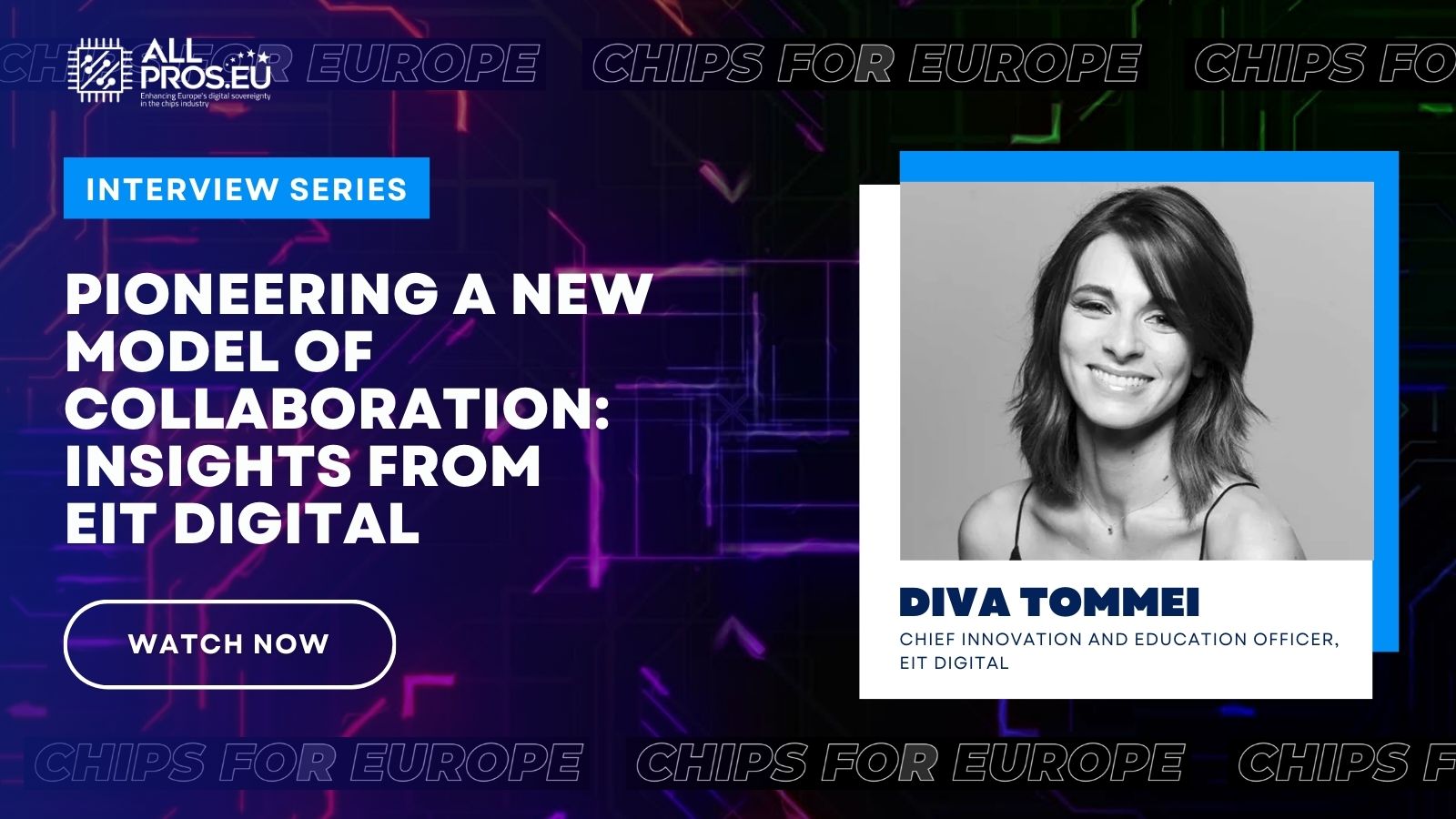
ALLPROS.eu Interview with Diva Tommei, EIT Digital
Pioneering a new model of collaboration: insights from EIT Digital
In our latest interview, we had the pleasure of speaking with Diva Tommei, who provided valuable perspectives on propelling Europe's digital transition. EIT Digital, a prominent knowledge and innovation community of the European Institute for Innovation and Technology, operates with a strategic focus on fostering inclusive, sustainable, and fair digital growth across the continent.
Drawing from her experience as Chief Innovation and Education, Ms. Tommei highlighted the need for a shared agenda-setting across domains and alignment with the UN Sustainable Development Goals. A collaborative ecosystem forms the bedrock for impactful initiatives and programs designed to drive Europe's digital evolution.
“The model we use is bringing together academia, research and innovation in what we call the knowledge triangle."
Ms. Tommei uses EIT Digital's educational initiatives, the Master School and the Digital Academy platform, as an example that cultivates a skilled workforce that can address the complex demands of the digital age. Both initiatives seek to close the gap between the academic and professional worlds by offering job-oriented, skill-focused learnings in collaboration with partner universities and experts in the field.
Similar educational initiatives must focus on the pressing issue of talent shortage within the semiconductor industry. Ms. Tommei urges Europe to prioritise strengthening STEM education from primary schools to universities, fostering industry-academia collaborations, promoting entrepreneurship and startups, and emphasising diversity and inclusion initiatives. By incorporating these strategies, she says, we can effectively attract and retain the next generation of skilled professionals, ensuring a robust and sustainable talent pool for the semiconductor industry's future growth.
“Perhaps the university is a more intuitive place to start, [...] but the sooner you can make an impact, the stronger the message, and the more ingrained that message will be.”
Ms. Tommei went on to highlight critical advantages that Europe possesses in advancing the semiconductor industry and attracting talent: its robust research and innovation ecosystem, skilled workforce, strong manufacturing capabilities, and emphasis on sustainability provide a solid foundation for nurturing semiconductor innovation. Additionally, Europe's commitment to intellectual property protection and its established track record of fostering collaborative environments position it as a global leader in driving technological advancements and fostering talent development in the semiconductor sector.
“It’s important for Europe to take a holistic, collaborative approach here, emphasising the strengths that it already has.”
Ms. Tommei wrapped up the interview by underscoring the opportunities that the semiconductor industry offers to the younger generations. As an enabling industry, it is a gateway to impactful technological advancements and a myriad of cross-disciplinary career opportunities. Additionally, the importance of chips for the green digital transition cannot be understated. With a focus on innovation, societal impact, and a collaborative work environment, the semiconductor industry presents an engaging platform for young people to make a lasting and meaningful contribution to the ever-evolving digital landscape and to society at large.
“There is an inherent growth approach to this industry that will allow you to stay very relevant and be able to choose what you do at all times, because you will be able to move across different sectors that all use semiconductor technology. So I think this is an incredible opportunity that the new generation has and it should absolutely be grabbed with no hesitation.”